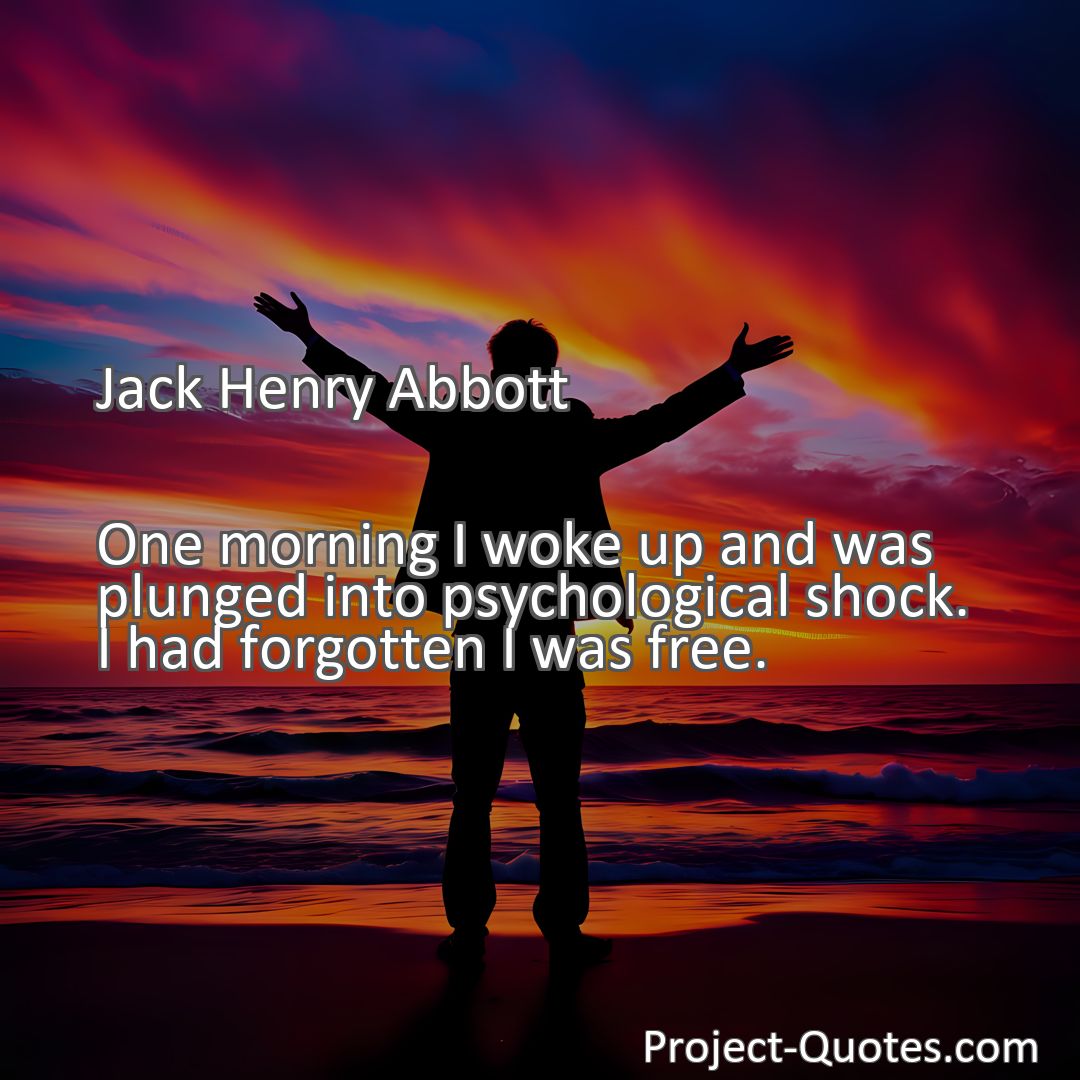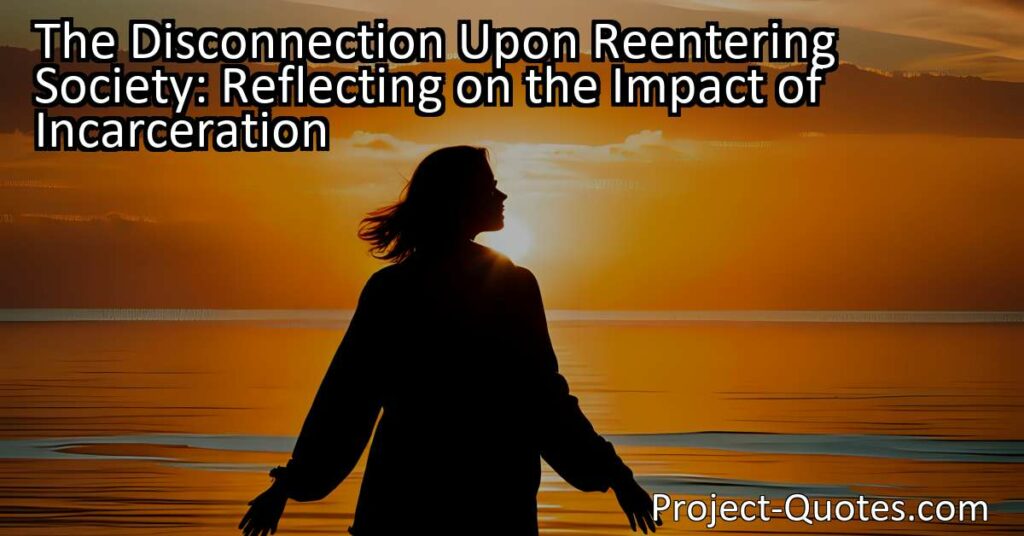One morning I woke up and was plunged into psychological shock. I had forgotten I was free.
Jack Henry Abbott
The Disconnection Upon Reentering Society: Reflecting on the Impact of Incarceration Jack Henry Abbott’s quote about forgetting he was free highlights the disorienting experience and psychological toll one may feel upon reentering society after an extended period of incarceration. It calls for a deeper understanding of the lasting impact of imprisonment on an individual’s psyche and the importance of rehabilitation and support for successful reintegration.
Table of Contents
Meaning of Quote – One morning I woke up and was plunged into psychological shock. I had forgotten I was free.
One morning I woke up and was plunged into psychological shock. I had forgotten I was free. These poignant words were penned by the infamous Jack Henry Abbott, an author and convicted felon whose story both captivated and divided the public. In this quote, Abbott captures the jarring experience of suddenly realizing one’s liberation after being confined for an extended period.
The human mind is a complex entity, capable of extraordinary resilience and adaptability. Yet, it is also prone to forgetting, especially in the face of overwhelming circumstances. Abbott’s words serve as a stark reminder that even the most fundamental truths about ourselves can slip away from our consciousness if we are not mindful. It is a powerful testament to the profound impact of incarceration on one’s psyche.
Sentenced to prison at the tender age of 18, Abbott spent most of his youth and early adulthood behind bars. Cut off from the outside world, he lived in an environment where freedom was nothing more than a distant memory. Throughout his years of imprisonment, he experienced firsthand the dehumanizing nature of confinement, where autonomy and personal agency were stripped away.
After being released from prison in 1981, Abbott found himself thrust into a society that had dramatically changed during his absence. The world had moved forward, while he remained trapped in a time capsule of his own making. The sudden realization of his freedom must have been an overwhelming shock to his system. Forgetting he was free highlights the psychological toll that extended periods of incarceration can have on an individual.
Imagine waking up one morning, surrounded by the same four walls you have grown accustomed to over the years, only to realize that those walls are no longer your prison. It is a disorienting experience, filled with a mix of emotions ranging from elation to apprehension. Abbott’s words encapsulate the disconnection one may feel upon reentering society after a prolonged absence.
Once released from prison, Abbott actively pursued his passion for writing. He gained notoriety for his 1981 novel, “In the Belly of the Beast,” in which he vividly described the harsh realities of life behind bars. In this autobiographical work, Abbott delved into the psyche of a prisoner, exploring the complex interplay between confinement, freedom, and identity. Undoubtedly, his own personal experiences heavily influenced the dramatic impact of his words.
The profound impact of Abbott’s quote extends beyond the realm of personal reflection. It prompts us to consider society’s role in fostering an environment that encourages rehabilitation and successful reintegration. Are our prisons equipped to provide the necessary support and resources needed for individuals to transition back into society seamlessly? Or do they perpetuate a cycle of recidivism, leaving released prisoners unprepared to face the challenges of the outside world?
The quote also serves as a reminder of the invisible wounds inflicted by incarceration. While physical freedom may be granted, the psychological scars can endure long after the prison gates have closed. Abbott’s words invite us to empathize with those who have experienced the trauma of imprisonment and to acknowledge the unique challenges they may face in their journey towards healing and recovery.
In conclusion, Jack Henry Abbott’s quote, “One morning I woke up and was plunged into psychological shock. I had forgotten I was free,” is a profound reflection on the lasting impact of incarceration on an individual’s psyche. It speaks to the power of confinement to erode one’s sense of identity and agency, and the disorienting experience of reentering society after a prolonged absence. Abbott’s words serve as a powerful reminder of the need to prioritize rehabilitation and successful reintegration, and to acknowledge the enduring psychological wounds inflicted by imprisonment.
I hope this quote inspired image brings you hope and peace. Share it with someone who needs it today!


